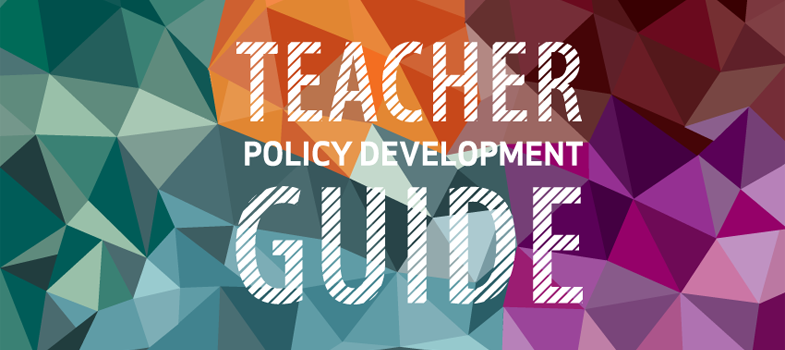Glossary
You can use the course glossary to help with any unfamiliar terminology.
Special | A | B | C | D | E | F | G | H | I | J | K | L | M | N | O | P | Q | R | S | T | U | V | W | X | Y | Z | ALL
E |
|---|
F |
|---|
Fast Track Initiative (FTI)See Global Partnership for Education. | |
Financial incentives
Additional financial compensation to base salary intended to encourage acceptance of work assignments in certain geographic areas or subjects, or to motivate and reward teachers or other staff for their performance.
| |
Flexible working hours
Schedules that allow education employees to structure their work hours around their professional development or personal responsibilities, often through part-time work, job sharing or a compressed workweek.
| |
Freedom of association
The right of workers and employers to freely establish and join organizations of their own choosing, including trade unions, without any distinction, previous authorization or interference, and subject only to the rules of the organization concerned.
| |
G |
|---|
General Education System Quality Analysis/Diagnosis Framework (GEQAF)
Framework to strengthen national capacity in assessing education systems, based on local knowledge and expertise, developed by UNESCO in collaboration with its Member States. The GEQAF, which contains 15 analytical tools covering key interconnected aspects of an education system, is designed to guide diagnostics/ analysis, in order to strengthen the knowledge base required to design and implement improvement interventions.
| |
Global Partnership for Education (GPE)
A multilateral partnership, established in 2002 as the Education for All Fast Track Initiative (EFA-FTI) and comprising around
60 developing countries, donor governments, international organizations, the private sector, teachers, and civil society/NGO groups, which is devoted to getting all children in school for a good quality education .
| |
Gross domestic product (GDP)
The primary indicator of a nation’s economic activity, and therefore wealth, GDP is the market value of all final goods and services from a nation in a given year. It is calculated as the population times market value of the goods and services produced per person in the country.
| |
H |
|---|
Hardship allowances
Allowances paid to teachers who work in remote, inaccessible or difficult-to-staff schools, in areas of extreme poverty or in difficult or dangerous conditions, such as conflict, post-conflict or post- disaster zones.
| |
I |
|---|
ICT (information and communication technologies)
Information and communication technologies, services, systems and networks which create, access, store, organise, protect, communicate and transmit information in a variety of electronic or digital forms. In education, ICT offers many tools and methods to support teaching and learning.
| |
Incentives
Financial or non-financial rewards designed to motivate individuals to accept a particular job or responsibility or to achieve certain objectives.
| |
Indirect discrimination
Less favorable treatment which occurs when the same condition or criterion is applied to everyone, but results in a disproportionately harsh impact on some persons on the basis of characteristics such as race, language, ethnicity, colour, sex or religion.
| |
Induction
The process of supporting a teacher to reflect on and develop their professional skills during the first few years of teaching or the first year in a particular school, through a combination of mentoring, informal support and ongoing formal training.
| |
Initial teacher education/ training (pre-service training)
Teacher education before entering a classroom or other educational site as a fully responsible teacher.
| |
In-service education and training (INSET, see also CPD)
The process by which teachers engage in further education or training to refresh or upgrade their professional knowledge, skills and practices in the course of their employment.
| |
International Task Force on Teachers for Education for All
A dedicated international alliance of stakeholders, including national governments, intergovernmental organizations, NGOs, CSOs, international development agencies and private sector organizations working together to address the teacher gap to meet the Education 2030 Agenda goals.
| |
J |
|---|
Job-sharing
A type of flexible work where two people share the same employment position.
| |
L |
|---|
Labour unions
See Teacher unions.
| |
Licensing
See Certification.
| |
M |
|---|
Medium-Term Expenditure Framework (MTEF)
A strategic policy and expenditure framework which balances what is affordable against policy priorities of the government, in the context of annual budget processes.
| |
For further information, take a look at our frequently asked questions which may give you the support you need.
If you have any concerns about anything on this site please get in contact with us here.
